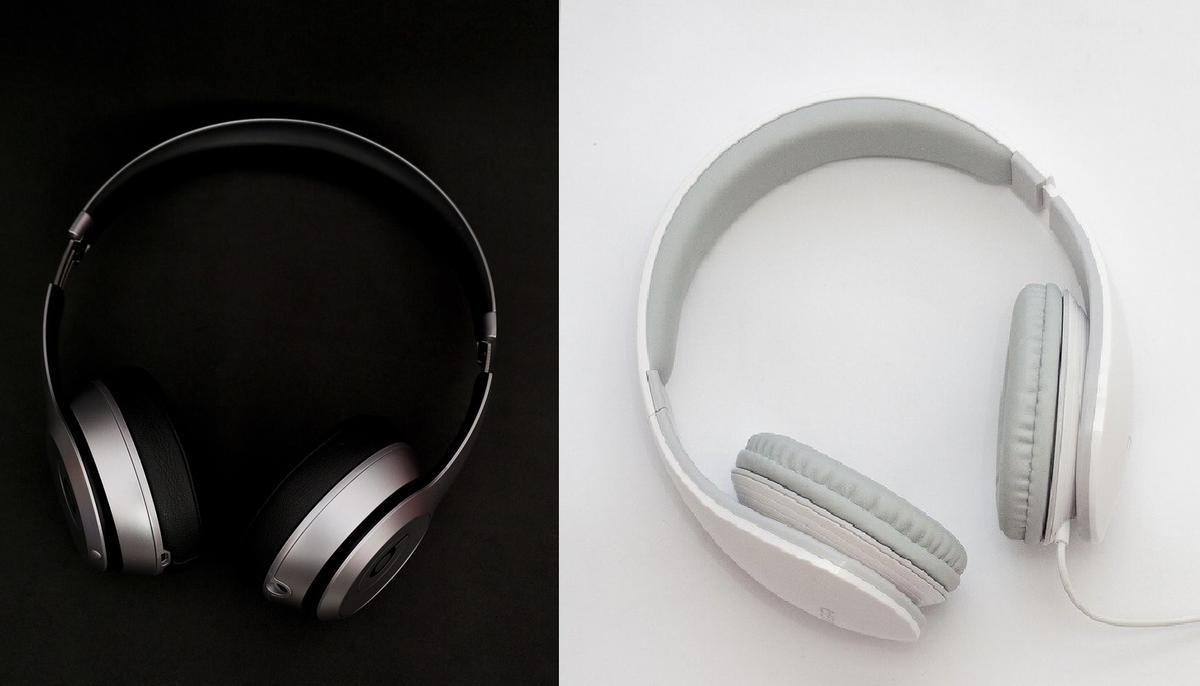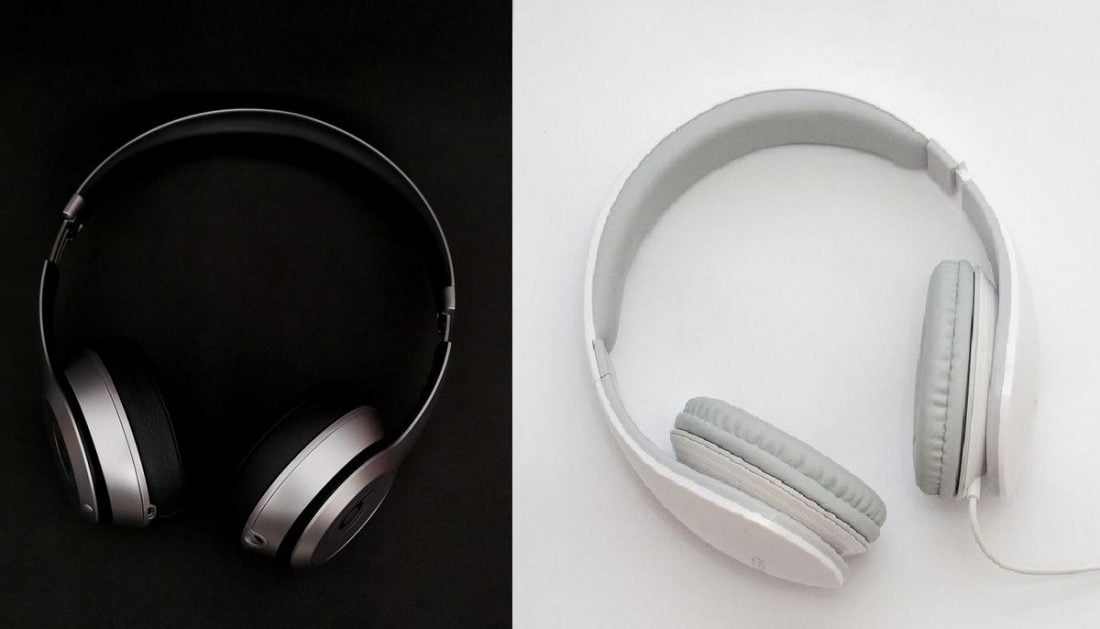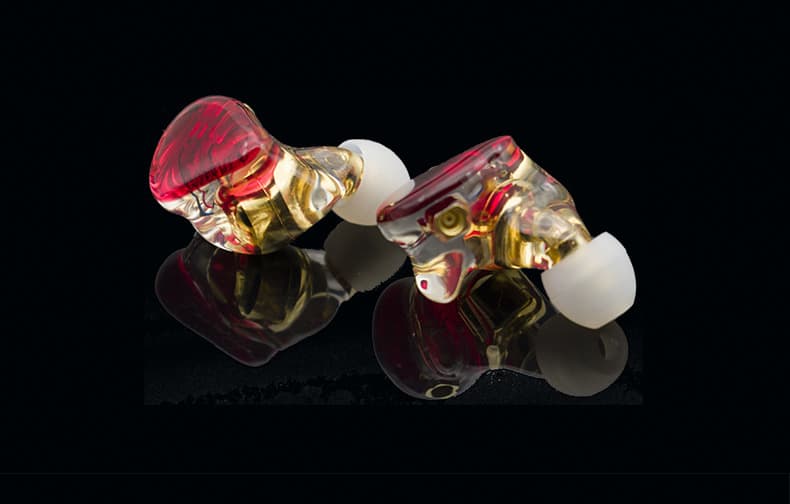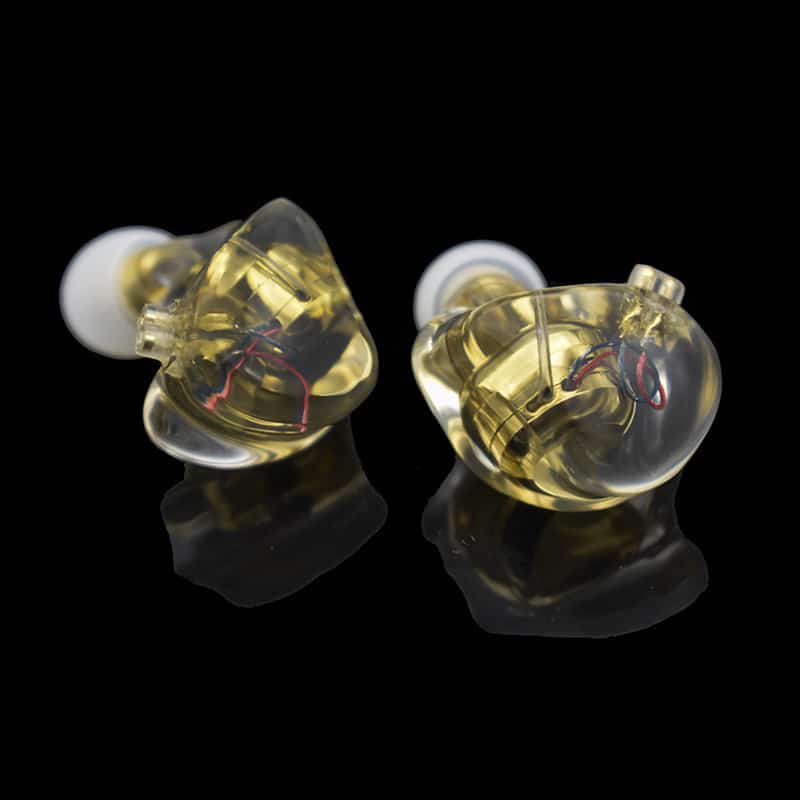By Chief EditorUpdated on September 3, 2021

Read the case between wired vs wireless headphones. And discover which headphone connectivity option suits your lifestyle better.
The wired vs. wireless headphones debate has been going on for quite a long time now. But as a newbie in this arena, it’s easy to be stuck between the two sides.
Indeed, choosing the right headphones can be a challenge. This is more true when you have no idea about the different considerations that you should factor in.
Sure, it’s tempting to go for wireless headphones to stay on top of the newest technologies. But wireless headphones are usually more expensive than wired ones. So will it really be worth it?

Moreover, wired or wireless come with their respective boons and banes. In this article, we’ll help you decide on what type of headphones would be best suited for your personality and lifestyle. Keep reading to learn more.
In This Article
- The Case for Wired Headphones
- The Case for Wireless Headphones
- Wired vs. Wireless Headphones: Which One’s for You?
- Conclusion
The Case for Wired Headphones
Wired headphones work in the same way as big speakers do. Basically, they’re miniature speakers intended for personal listening.They make use of headphone jacks and plugs to transmit sound from the device to the headphones. Some of the most common types of headphone plugs include 3.5mm, TRS, TRRS, TRRRS, and USB.
Advantages of wired headphones
Despite wired headphones being considered as ‘older’, most people still prefer them over wireless ones. In fact, a 2016 study showed that wired headphones had 83% unit sales while wireless headphones only had 17%.
There are many reasons why people still prefer good ol’ wired headphones. Below are some of them.
Better sound quality
Wireless headphone technology has significantly improved over the years. But nothing beats the audio quality of wired headphones.
Since wired headphone manufacturers won’t have to splurge for wireless technology, they can focus their attention (and budget) on what really matters—sound quality.
To provide great sound quality, wired headphones use analog signals. This can handle more data than digital signals like Bluetooth. This means that your audio won’t have to go through so much processing to reach you. Thus, they can skip audio compression and deliver it in its full resolution.
Costs less and easy to repair
Wired headphones cost relatively less than wireless ones. This is because wireless technology is more expensive to develop and manufacture. Also, wired headphones are easier to repair.
Be it frayed headphone wires or damaged/shorted wires there’s an easy fix for that. Plus, replacement parts for wired headphones are also affordable and more readily available.Keep in mind, however, that when considering the price of wired vs. wireless headphones, it still depends on their brand, quality, and additional features. Thus, you may find some wireless headphones that are cheaper than other wired headphones.
Unlimited playtime
Most standard wired headphones contain passive speakers that produce line-level audio signals. These headphones usually don’t need an external power source. The audio signals themselves produce enough power to operate the headphones. Thus, there’s no need for chargers nor batteries.
As long as your wired headphones are plugged into your audio source, you’re good to go!Active noise-canceling headphones, however, need a continued source of power to neutralize ambient noise. Hence, albeit wired, they still need batteries.
Easy to use
Wired headphones have a plug-and-play setup. Simply plug it into your audio device and it can play your audio right away.
With them, you don’t run the risk of any unwelcome wireless interferences and pairing issues. Considering these factors, they’re undeniably more user-friendly than wireless ones.
Disadvantages of wired headphones
Even with all the advantages that wired headphones have, there are still some downsides to them. Below are some of their major disadvantages.
Can restrict movement
There’s no denying that wires can restrict the users’ range of motion. Users are bound to limit their movements so that they won’t accidentally tug the wires. Plus, users are basically tied to their audio source.To bypass this mobility issue, wired headphone users can opt to buy headphone wire extensions. These cord extensions vary in length. Users, especially gamers, may choose their ideal length depending on their specific needs.
However, untangling knotted wires can also be a hassle. And it can take a lot of your time. Untangling the wires can even lead to fraying if you’re not careful.
Wires can be fragile
Headphone wires are often thin and frail. Intentionally or unintentionally tugging on them can damage their internal wirings and even cause short circuits. This can be a hassle, especially when the headphones already start to malfunction.
When the wires get damaged, it could result in your headphones only playing on one ear, static sounds, and other issues. Don’t worry though! There are some headphone repair hacks that you can try to solve this.To get around with fragile headphone wires, it’s best to get headphones with replaceable cables. But before splurging on one, it would help if you first study whether or not expensive cables are worth it.
Compatibility
The 3.5 mm headphone jack has been the universal standard for most modern audio devices for years. But nowadays, some brands start using different types of jacks, or none at all! An example of this is iPhone’s newer models and their lightning USB headphone and charging port.If your cable and port are incompatible, you may need to buy a suitable adapter for your headphone plug. And, although that’s a quick solution, not everyone will appreciate the additional costs
Also, PCs sometimes have two separate headphone jacks for mic and audio. This could be an issue of compatibility if your headset has only one plug. Luckily, there are headset splitters that you can buy to address this issue.
The Case for Wireless Headphones
Wireless headphones use radio transmission technology to transfer audio data from the source to your ears. The audio data transmission in headphones are commonly coursed through three technologies:
- Bluetooth,
- Radio Frequency (RF), or
- Infrared Frequency (IF)
In Bluetooth transmission, an audio device encodes audio data into a compressed form. This data is then sent to the headphones via radio waves. Then, the headphone device decodes this and converts it into an audio signal using Bluetooth codecs.Bluetooth technology has evolved into many Bluetooth versions. The latest version as of date is Bluetooth 5.2. This version boasts of a wide range of up to 240m and less power consumption.
In RF technology, on the other hand,the audio transmission process involves a stereo frequency modulation system. RF headphones utilize electromagnetic signals to receive audio from an audio device. Unlike Bluetooth, it has a much stronger and longer range.
RF is more commonly used for wireless headphones made specifically for TV. Depending on the headphones, the range can even reach up to 300 ft.
Lastly, in IF transmissions, line-of-sight technology is used to transmit audio signals. In here, no interference or blockages should come between the transmitter and receiver. Aptly named, they must be in the ‘line-of-sight’ of each other. Headphones, microwaves, and FM radios also use this technology.
Advantages of wireless headphones
Manufacturers today are looking for innovative ways to combine technology with comfort. No wonder, everything is becoming wireless. Devices like game controllers and headphones are now transitioning to becoming totally wire-free. And it’s not hard to see why.
Below are some reasons why you should opt for wireless headphones.
Freedom of movement
Wireless headphones offer a wide range of movement. With them, you are free to move without having to worry about accidentally yanking the cord. This can also solve the inconvenience of having to carry the audio source with you all the time. Some wireless headphones even offer up to 100ft distance from your audio source.
Compatible with more modern devices
With the evolution of technology, more and more smartphones and audio devices are ditching the 3.5 mm jack. With the 3.5 mm jack out of the way, Bluetooth is becoming the new standard in audio transmission.With the development of modern gaming software like virtual reality, the demand for wireless headphones is continually increasing. Studies show that by 2027, the revenue forecast for the wireless headphone market is USD 3.41 billion.
More portable
Since wireless headphones don’t have extra wires and components, they’re more portable and lighter. Wireless headphones’ compact design makes them great options for active people. The lighter weight also usually affects comfort as lighter headphones typically give less stress on the users’ heads.
Most wireless headphones are also foldable, making them easy to pack with your stuff for travels or simple day-to-day commutes.
No more wires
Aside from not having to worry about accidentally tugging the cords, wireless headphones can also mean no more annoying tangled wires.
You won’t have to deal with knotty wire messes again (at least for your headphones). Also, you won’t need to buy expensive cable replacements in case your fragile headphone wires break.
Disadvantages of wireless headphones
Wireless headphones have come a long way since their inception. However, there are still certain aspects to it that need improvement. Below are some of the downsides of wireless headphones.
Requires charging
Have you ever taken out your phone during a long train ride only to find out that it’s running low on battery? That could also be the case for wireless headphones.
Wireless headphones require constant charging. This can be cumbersome especially when traveling for long periods of time. Plus, not only do wireless headphones drain their own battery, but they also drain the audio device’s battery. Talk about a double whammy!Some wireless earbuds like the Lypertek Tevi can now go up to 70 hours without charging though. That’s a 10-hour play on the earbuds themselves and a whopping 60 hours worth of battery life stored in the headphone/charging case.
More expensive
The manufacture and development of wireless technology is no easy feat. It takes a lot of research and testing to get to its most ideal form. No wonder wireless headphones are usually pricier than their wired counterparts. Plus, if you’re using Bluetooth headphones for non-compatible devices, like Nintendo Switch, Xbox One, or your TV, you will need to invest in a separate Bluetooth audio transmitter.
Of course, the price will still largely depend on the brand, quality, and additional features that wireless headphones have. But for the most part, the average wireless headphones are still considered pricier.
Repair is harder if not impossible
In the case of wired headphones, you can easily repair damaged or frayed wires. But for damages in wireless headphones, this cannot be easily done. If it is the software that has malfunctioned, the average joe cannot repair it by himself. So, in the case of wired vs. wireless headphones, wired headphones clearly win in regards to repairability.
Connectivity and pairing issues
With wireless headphones, good connectivity is a major area of concern. Below are some factors that are essential for stable wireless audio connectivity:
- Audio codecs: As discussed, audio codecs are special algorithms that are responsible for encoding, compressing, and decoding audio data. In wireless transmissions, these codecs affect the bandwidth, sample rate, and latency of the audio. When some audio data is lost during the coding and decoding, audio quality deteriorates.
- Interferences: When there are many wireless devices in a small area, interferences among them may occur. This is especially true when they operate under the same frequencies. Examples of these are Wi-Fi routers, microwaves, and radios. The radio signals that they emit can adversely affect the audio quality, cause audio delays/lags, or even audio dropouts.
- Bluetooth versions: As of date, there have been many Bluetooth versions that were developed since its inception. Accordingly, the more advanced the Bluetooth version is, the more reliable it is.
Case in point, there’s more noticeable latency on devices running on Bluetooth ver. 3.0 compared to those running on Bluetooth ver. 5.2. The additional features and improvements brought about by the later versions make them more efficient.
Wired vs. Wireless Headphones: Which One’s for You?
There’s no hardwired answer to this. The ideal choice still highly depends on your lifestyle and the activities you’ll most likely use your headphones for. Different lifestyles demand different features.
Below is a list of those who most likely need a specific type of headphones for more comfortable use.
Who are wired headphones for?
Office workers
Office workers, especially those in the customer service department, need no-nonsense headsets. They ought to have headsets that can deliver good quality sound and transmit good quality input as well. Wired headphones are the best in those fields.
Most of all, wired headphones need no charging. This means that office workers can just plug it in and work right away. This is a lot more convenient than wasting their time waiting for the headphones to charge.
Musicians and audiophiles
One thing that musicians and audiophiles have in common is that they both have ‘well-trained ears’. For them, music must be heard in the way that it ‘ought’ to be heard. Every bass beat and musical detail is important to them.
It’s no secret that wired headphones deliver better quality audio than wireless ones. With their well-trained ears, they can detect even the slightest difference in audio quality. This is why both of them prefer wired headphones over wireless ones.
Gamers who can’t afford to experience latency
Hardcore gamers know that precision is key. That is why they can’t afford to experience any degree of latency, especially during intense gameplay. Any sound delay can be equivalent to their position being compromised or worse, losing the game.
Because of this, gamers who do not tolerate any form of sound delay prefer wired headphones over wireless ones. Even low latency Bluetooth headphones run the risk of possible and unexpected interferences. This is why wired headphones are still more reliable when it comes to latency issues.
People who are on a budget
As discussed, wired headphones are still way cheaper than wireless ones. Without the added wireless technology feature, the headphones can come at a lower price. People who are on a tight budget can be assured that they would still get great quality audio (arguably even greater!) with wired headphones.
People who prefer plug-and-play
For those who like straightforward technology, wired headphones are their best bets. These have a plug-and-play setup that is perfect for those who don’t like the hassle of the extra steps that wireless pairings bring.
Who are wireless headphones for?
Athletes or people with active lifestyles
Since the invention of headphones, it has become a habit to listen to music while training or working out. Wireless headphones are perfect for athletes and active people. These don’t only provide unrestricted mobility, they’re lightweight too. The most suitable type of wireless headphones for these people are true wireless earbuds.
Aside from athletes, wireless headphones are also more advised for people who are working in industrial plants or places with constant noise. There are Bluetooth hearing protection devices available in the market to make it safer, not just for your ears, but to avoid wires from getting caught in other equipment.
Frequent travelers
As discussed, wireless headphones are compact and lightweight. These two features are what makes them especially handy for frequent travelers. These portable headphones can keep them entertained during long plane and train rides.For long rides, headphones with noise cancellation features are the best. With them, you can drown out any unwanted background noise. You can wear them to play music or you can simply turn the feature on with no music at all.
Users who prefer more freedom of movement
Wireless headphones offer more mobility than their wired counterparts. Wireless headphone users don’t have to worry about moving too far away from the device. As a result, they get a more immersive experience.
Conclusion
In the end, it’s all a matter of personal preference. For office workers and true audiophiles, nothing beats the sound of wired headphones. Meanwhile, for people who love moving around, wireless headphones are a dream come true.
There’s no such thing as the ‘perfect headphones’. Whether wired or wireless, these headphones have their individual advantages and disadvantages. The ‘right choice’ would necessarily depend on your own lifestyle and quirks.
Whatever you choose, both these headphones can offer you great quality audio. If you have any questions or comments, feel free to leave us some feedback in the comments section below. We’d love to hear from you!FILED UNDER: HEADPHONE TYPESWIRED HEADPHONESWIRELESS HEADPHONES
1 COMMENT
MaxiDid ya know there are headphones that are Bluetooth and wired boom best solution you just have both in one and can use whatever you like whenever you like 👍Reply
Leave a Reply
COMMENT *
NAME *
EMAIL *
NOTIFY ME OF FOLLOW-UP COMMENTS BY EMAIL.
NOTIFY ME OF NEW POSTS BY EMAIL.
SPONSOR
Related Articles
9 Types of Headphones That You Should KnowBy Gab LReview: AIAIAI TMA-2 MOVE Wireless – Ay Yi Yi! The Right CombinationBy Trav WilsonHow to Connect Beats to Your Laptop & Other DevicesBy Chief EditorHow to Avoid Bluetooth Interference in HeadphonesBy Jordan Jamieson-ManeHow to Connect Any Bluetooth Headphones to Mac: Issues and FixesBy Chief EditorHow to Connect Bluetooth Headphones to PC: Problems and FixesBy Chief Editor3 Crucial Factors That Affect How Long Your Headphones LastBy Chief EditorHow to Fix Bose Headphones: The Ultimate GuideBy Chief EditorWhat Does the Button on the AirPods Case Do? Here’s How It WorksBy Gab LAirPods Pro Controls: The Ultimate Cheat SheetBy Chief EditorHow to Use Headphones Over Hoodie Without Sacrificing Sound QualityBy Chief EditorDo Noise Cancelling Headphones Work Without Music?By Chief EditorBluetooth vs Wired Headphones Radiation: Should You Worry?By Chief EditorUltimate Guide to DSP AudioBy Jefri YonataWhy Do My Airpods Keep Cutting Out? [Solved]By Chief EditorAirPods Flashing Orange: What It Means & How To Fix It By Gab L The week’s best headphones news, sent right to your inbox. Read one of it.SIGN UPFOLLOW US
© 2016-2021 HeadphonestyUpdate Privacy Settings



